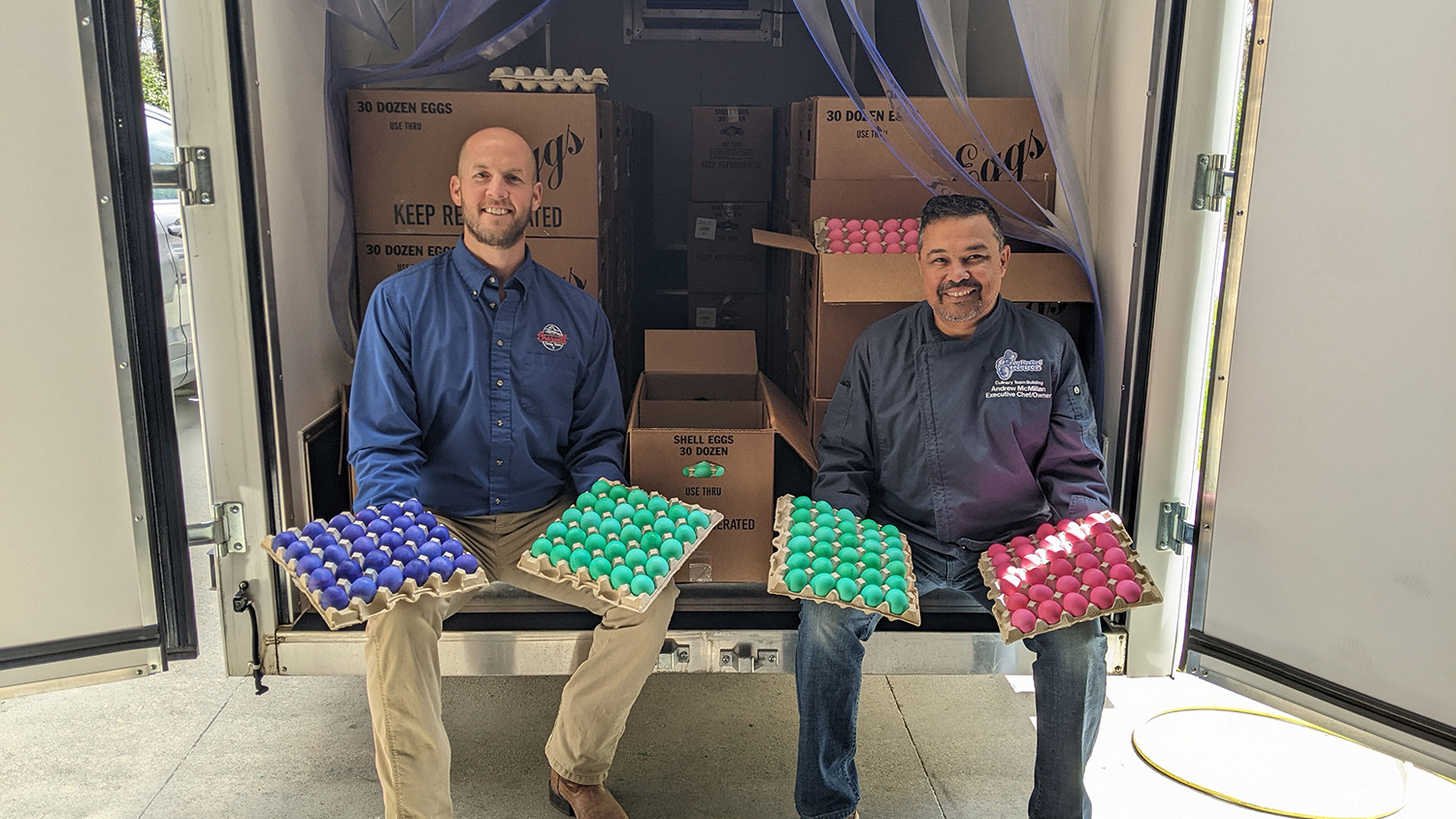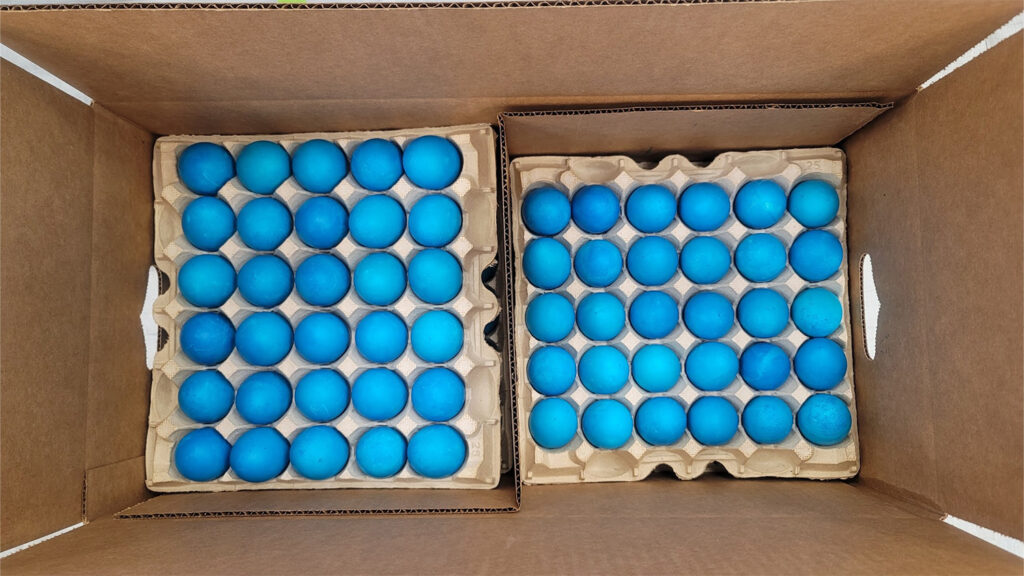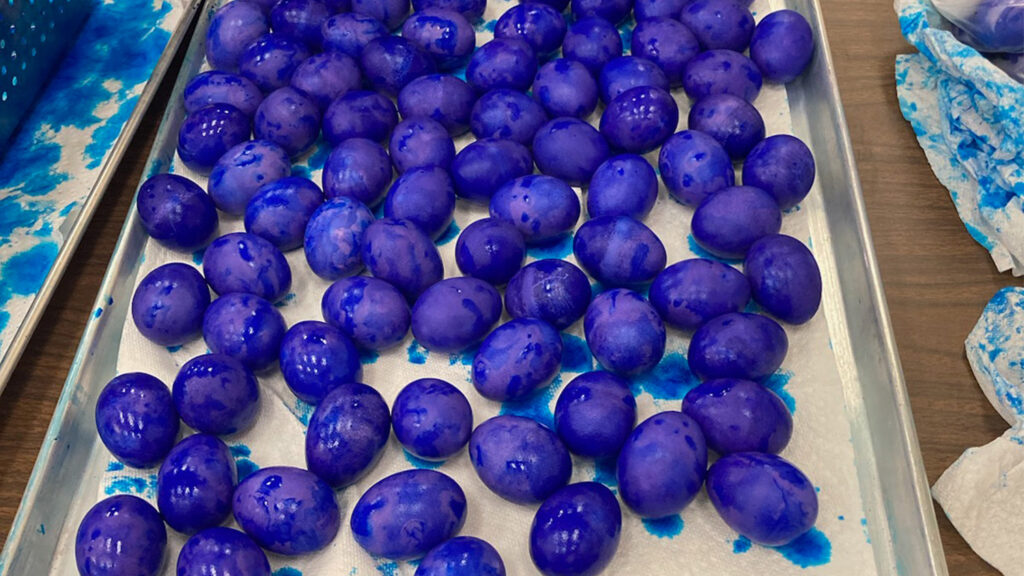Some Good Eggs
Trey Braswell ’07 and his family relish the chance to donate the thousands of eggs needed for the annual White House Easter Egg Roll.

For Trey Braswell ’07 and his family, one of the highlights of the past weekend was a series of Easter egg hunts at their home in Nashville, N.C. Between gatherings for family, school groups and church groups, Braswell figures they had four different hunts over the holiday weekend.
But that was nothing compared to the Easter festivities Braswell and his family’s farm helped make possible in Washington, D.C.
For the second consecutive year, Braswell Family Farms provided the eggs – 30,000 of them this year — for the long-running Easter Egg Roll on the lawn of the White House. President Joe Biden and First Lady Jill Biden — as well as the Easter Bunny and a handful of celebrities — were there to help small children use large spoons to roll colorful eggs across the lawn.


And while 30,000 eggs seems like an awful lot of eggs, it’s not a particularly big number for Braswell Family Farms. That’s because they have about 1.7 million chickens. “On the scale of things, it’s not a lot,” says Braswell, the farm’s president.
The bigger challenge was that the farm also had to make sure the eggs were hard-boiled and dyed before they got to Washington, D.C. “That is quite an undertaking,” Braswell says.
The farm, run by four generations of Braswells in its 80 years of operation, has been providing eggs for the White House event off and on since 1997. Braswell remembers taking part in the event when he was six or seven years old, getting a glimpse of President George H.W. Bush and enjoying a beautiful spring day on the White House lawn. “It was pretty surreal,” he says.
But for most of the years, the farm simply had to deliver the eggs to a catering operation in Washington that would take care of boiling and dying them. That changed two years ago, so Braswell Family Farms teamed up with a cooking school in Winston-Salem — The Stocked Pot — to handle the boiling and dying (to color specifications provided by the White House). It’s a weeklong operation to get the eggs ready to be driven to Washington in a refrigerated truck. After the event, an organization collects the eggs so that they can be turned into compost.
The eggs are a donation by the farm, but Braswell is happy to do it as part of a larger effort by egg farmers nationally to help fight hunger. He hopes to continue to be involved with the White House event, and take his three young children to join the celebration within the next few years.
“We feel like it’s an honor to provide joy for these kids,” he says. “It’s part of our civic duty as egg farmers. We get a lot of pride and excitement from it.”
And as a Christian, Braswell says he is glad that eggs are seen as a symbol of new life. “It’s a real source of joy for us,” he says.


